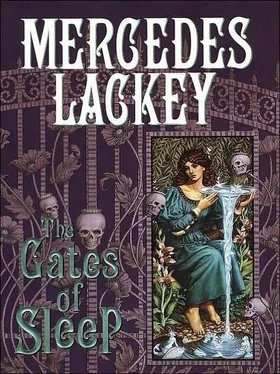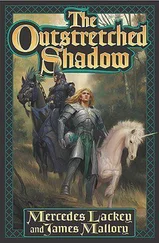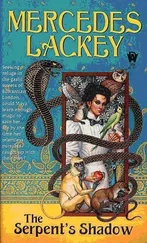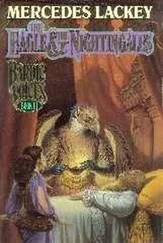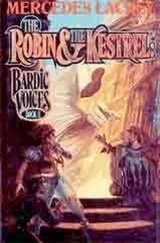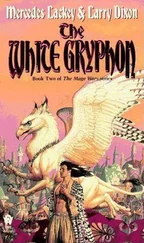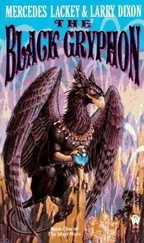The otters took to this new game with all the enthusiasm that they brought to any endeavor, and soon the pond was alive with splashing and shrill laughter. Undines chased otters in every direction; slippery otters slid right through Marina’s fingers, though truth to tell, she didn’t try very hard to hold them. It was more fun watching them twist and turn in the water to avoid capture than it was to try and wrestle a squirming body that just might deliver an accidental nasty kick—with claws!—if you weren’t careful.
Only when Marina was completely out of breath did she retreat to her rocks and watch the Undines continue the game on their own. The smallest of the otters evidently ran out of energy at the same time, and joined her. After she combed out her hair with her fingers and coaxed most of the water out of it, she stroked the otter’s smooth, dense fur and scratched its head as it sighed with content and erected its stiff whiskers in an otter-smile. It rolled over on its back, begging for her to scratch its tummy. She chuckled, and obliged.
But the sun was westering; it was past teatime, and neither the Undines nor the otters seemed prepared to give up their game any time soon. They might be perfectly free to play until dark and afterwards, but she did have things to do. Reluctantly, she donned her clothing again—reluctantly, because after the freedom of being in the water, it seemed heavy and confining—pulled her skirts up above her knees, and waded back to dry land.
She stopped in the orchard long enough to retrieve her basket of apples and her book. With the basket swinging from one hand, she took her time strolling back to the farmhouse.
In the late afternoon sunlight, the gray granite glowed with mellow warmth. When winter came, the stone would look cold and forbidding, but now, with all the doors and windows open, flowers in the window boxes, and roses twining up trellises along the sides, it was a welcoming sight.
Tea was over, but as she’d expected, Aunt Margherita had left her scones, watercress sandwiches, and a little pot of clotted cream in the kitchen under a cheesecloth. There was no tea, but there was hot water on the stove, and she quickly made her own late repast. She arranged the apples she’d brought in a pottery bowl on the kitchen table, and retreated to her room to fetch her work. After her swim, she was feeling languid, and her window seat, surrounded by ivy with a fine view of the hills and the sunset, seemed very inviting. Uncle Sebastian would be fiddling with his Saint Joan, working on the background, probably; Uncle Thomas was carving an occasional table, a swoopy thing all organic curves. And Aunt Margherita was probably either at her embroidery or her tapestry loom.
Her uncles expected a great deal of her in her studies; they saw no reason why she couldn’t have as fine an education as any young man who could afford the sort of tutor that Sebastian’s father had been. Granted, neither Sebastian nor Thomas had attended university, but if they’d had the means or had truly wanted to they could have. So, for that matter, could Aunt Margherita. Perhaps women could not aspire to a university degree, but they were determined that should she choose to attend the single women’s college at Oxford regardless of that edict, she would be as well or better prepared than any young man who presented himself to any of the colleges there. She was not particularly enamored of the idea of closing herself up in some stifling building (however hallowed) for several years with a gaggle of young women she didn’t even know, but she did enjoy the lessons. At the moment she was engaged in puzzling her way through Chaucer in the original Middle English, the Canterbury Tales having caught Uncle Sebastian’s fancy. She had a shrewd notion that she knew what the subjects of his next set of paintings was likely to be.
Well, at least it will be winter by the time he gets to them. If she was going to have to wear the heavy medieval robes that Uncle Sebastian had squirreled away, at least it would be while it was cold enough that the weight of the woolens and velvets would be welcome rather than stifling.
At the moment, it was the Wife of Bath’s Tale that was the subject of her study, and she had the feeling that she would get a better explanation of some of it from Aunt Margherita than from the uncle that had assigned it to her. Uncle Sebastian was not quite as broad-minded as he thought he was.
Or perhaps he just wasn’t as broad-minded with regard to his “niece” as he would have been around a young woman who wasn’t under his guardianship. With Marina, he tended to break out in odd spots of ultra-middle-class stuffiness from time to time.
She curled herself up in the window seat, a cushion at her back, with her Chaucer in one hand, a copybook on her knee, and a pencil at the ready. If one absolutely had to study on such a lovely late afternoon, this was certainly the only way to do so.
Chapter Three
SEBASTIAN had gone down to pick up the post in the village; no one else wanted to venture out into the October rain and leave the warmth of the cottage. Marina was supposed to be reading Shakespeare—her uncle was making good his threat to paint her as Kate the Shrew and wanted her to become familiar with the part—but she sat at the window of the parlor and stared out at the rain instead. Winter had definitely arrived, with Halloween a good three weeks away. A steady, chilling rain dripped down through leafless branches onto grass gone sere and brown-edged. Even the evergreens and the few plants that kept their leaves throughout the winter looked dark and dismal. The air outside smelled of wet leaves; inside the foyer where the coats hung, the odor of wet wool hung in a miasma of perpetual damp. Only in the foyer, however. Scented candles burned throughout the house, adding the perfume of honey and cinnamon to counteract the faint chemical smell of the oil lamps, and someone was always baking something in the kitchen that formed a pleasant counter to the wet wool.
And yet, for Marina at least, the weather wasn’t entirely depressing. Water, life-giving, life-bearing water was all around her.
If the air smelled only dank to the others, for her there was an undercurrent of potential. She sensed the currents of faint power that followed each drop of rain, she tasted it, like green tea in the back of her throat, and stirred restlessly, feeling as if there ought to be something she should do with that power.
She heard the door open and shut in the entranceway, and Uncle Sebastian shake out his raincape before hanging it up. He went straight to the kitchen, though, so there must not have been any mail for her.
She didn’t expect any; her mother didn’t write as often in winter. It was probably a great deal more difficult to get letters out from Italy than it was to send them from Oakhurst in England.
Italy. She wondered what it would be like to spend a winter somewhere that wasn’t cold, wet, and gray. Was Tuscany by the sea?
I’d love to visit the sea.
“I don’t suppose you remember Elizabeth Hastings, do you?” asked Margherita from the door behind her. She turned; her aunt had a letter in her hand, her dark hair bound up on the top of her head in a loose knot, a smudge of flour on her nose.
“Vaguely. She’s that Water magician with the title, isn’t she?” Marina closed the volume in her lap with another stirring of interest. “The one with the terribly—terribly correct husband?”
Margherita laughed, her eyes merry. “The only one with a ‘terribly—terribly correct husband’ that has ever visited us, yes. She’s coming to spend several weeks with us—to teach you.”
Читать дальше
